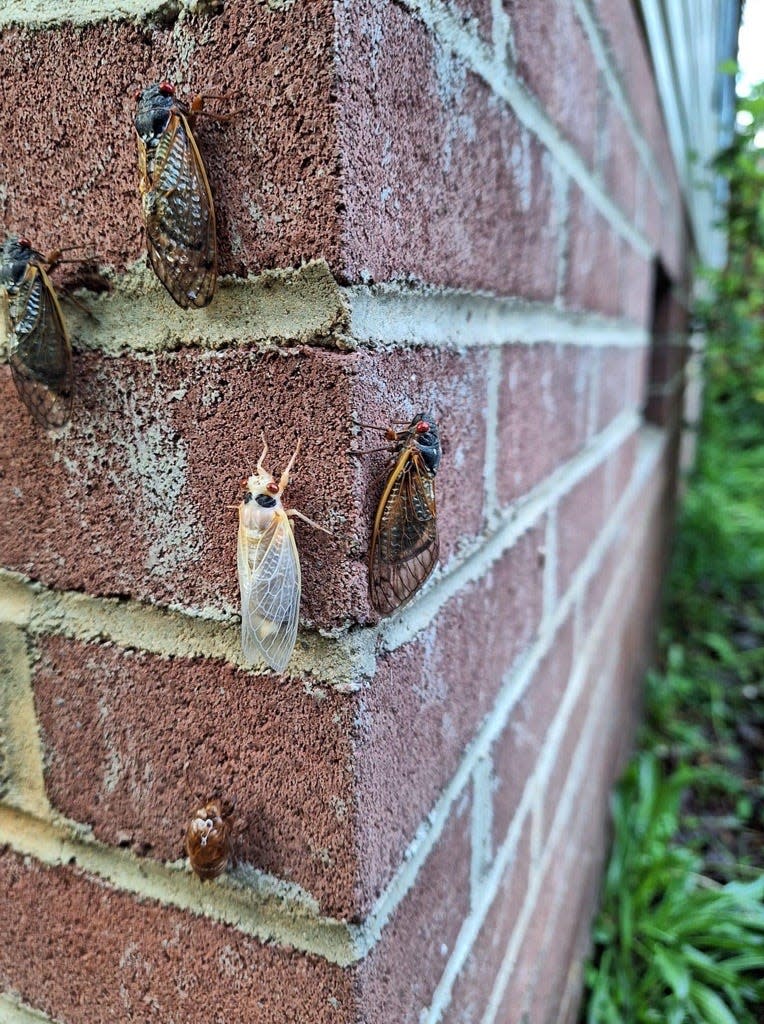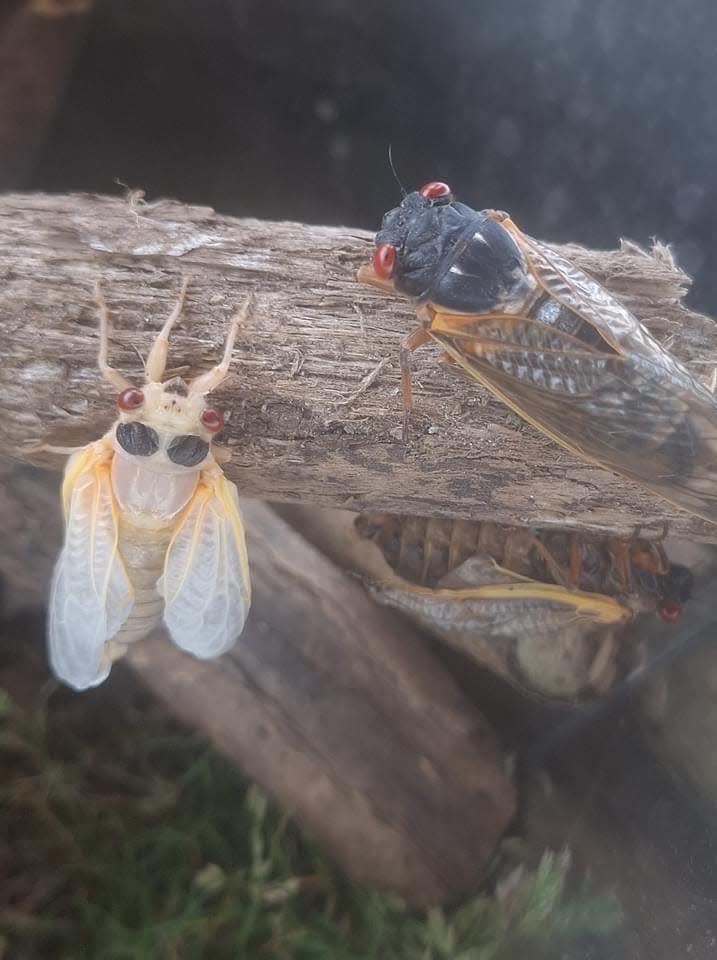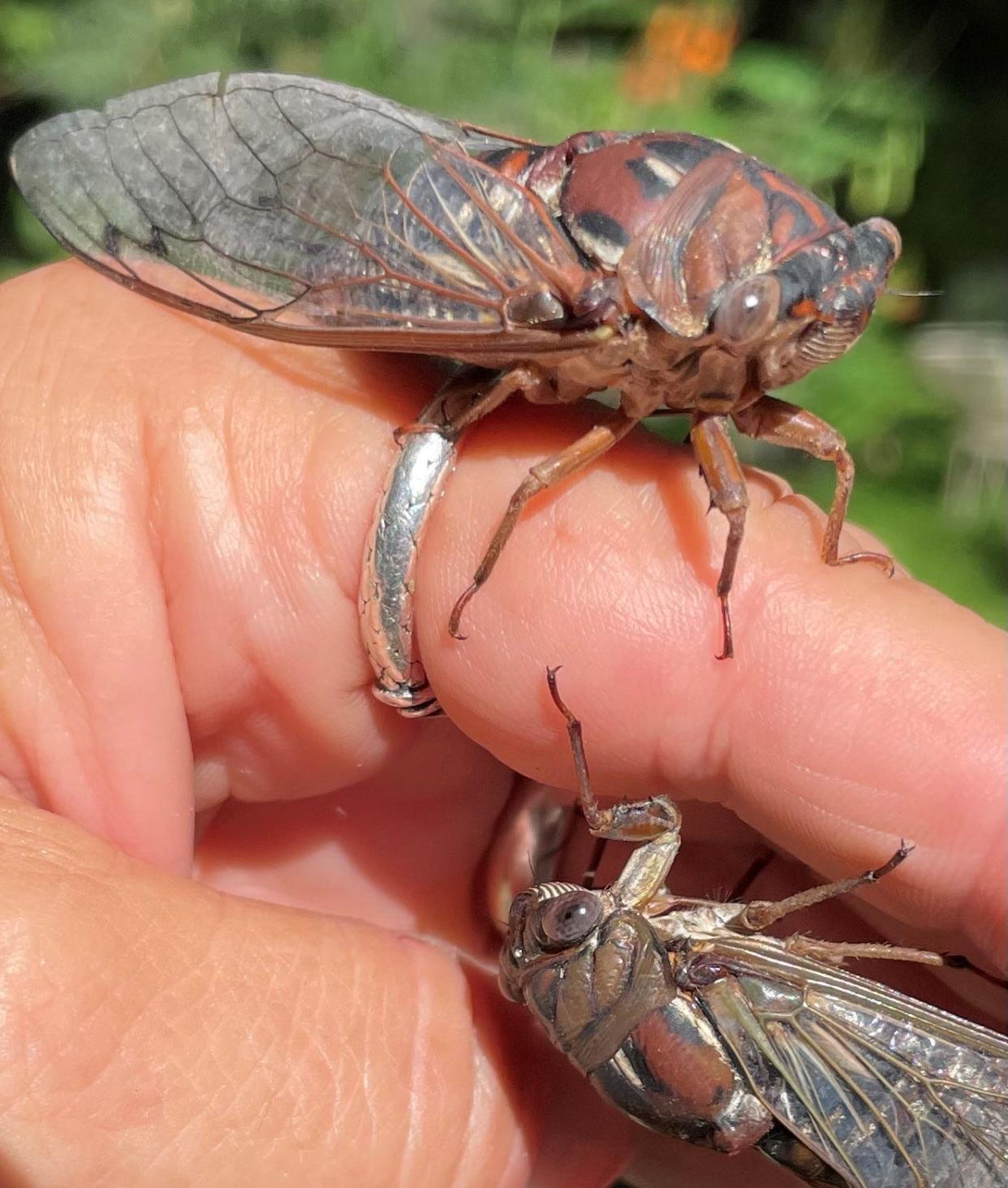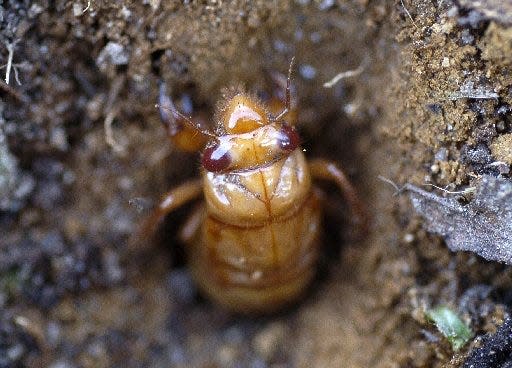Brood XIX cicada are emerging, popping up in South Carolina yards, photos on social media
Social media is buzzing with Brood XIX sightings from Upstate residents.
In Facebook groups, excited residents have shared photographs and footage of cicadas they have seen in their backyards and homes.
However, not everyone is psyched about the insect's appearance.
Some residents have complained about having to clean up after the cicadas, who have left exoskeletons behind after shedding. Others have complained about the mighty noise from the tiny, winged creatures. In Newberry, the bugs prompted locals to call the police out of concern about what all of the noise was about.
If you are a local interested in sharing your cicada photo with the Greenville News for our next story, read on to find out how. Locals wondering where to find the cicadas to take pictures can also read on to find out where the bugs like to frequent.
Upstate locals share cicada photos


What are cicadas, and what do they look like?
According to Clemson University, cicadas are thick-bodied, plant-feeding insects that can be found clinging to trees and vegetation. They measure 1-2 inches long and have compound eyes in shades of black and red, although some may emerge with blue or white eyes. Having two eyes is better than one, but cicadas are lucky enough to have three called the ocelli, which are located in the middle of their head. The wings of the insects are thick with prominent veins, and their antennae are small.
Cicadas are known for their loud, shrill noise and exoskeletons (discarded shells). Along with hemipterans like leafhoppers and spittlebugs, cicadas belong to the suborder Auchenorrhyncha. They can be found worldwide, but they live in the eastern and southern parts of the U.S.

Annual cicadas and periodical cicadas are oftentimes confused with one another. In South Carolina, annual cicadas, which are black and green, can be heard every year during the summer. Periodical cicadas are smaller at 1.5 inches. They are black with red eyes and orange veins within their wings, only emerging every 13-17 years. Broods XIX are periodical cicadas.
"People hear the annual cicadas every year," said Clemson University's extension entomologist Eric Benson. In the summertime, when it's hot, dog-day cicadas can be heard. In the late afternoon or evening, you'll hear that whining in the trees. Those are the cicadas, the males calling to the females. But you know, that may be tens of hundreds (of cicadas), not tens of thousands or millions. It's just the sheer number that makes them so loud."
Where can I see the cicadas?
Cicadas are found across all continents, excluding Antarctica, appearing anywhere from deserts, forests, and even urban areas. Periodical cicadas like Brood XIX and XIII are native to eastern North America.
Wildlife Informer lists the following locations that serve as cicada habitats:
∎ Forest canopies
∎ Grasslands and shrubby areas
∎ Wetlands and riparian zones (areas near bodies of water)
∎ Urban environments

How can I send my cicada photos to the Greenville News?
Email your photos to trending reporter Nina Tran at ntran@gannett.com so they can appear in the next cicada story.
Nina Tran covers trending topics. Reach her via email at ntran@gannett.com
This article originally appeared on Greenville News: Have any bugged-out cicada photos? Social media buzzing with sightings
